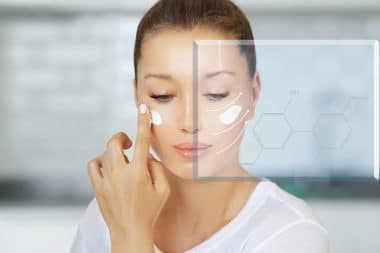Sunshine is good for you as long as you aren’t out in it for too long. Sunburns are unpleasant to downright painful, and too much of a good thing can kill you. But moderate exposure is actually needed by the body.
Sunlight has numerous health benefits that far outweigh the dangers, but you just need to be careful of how much exposure you get.
Enter sunscreen. Sunscreen is the answer right? Well, maybe, but maybe not. Sunscreen does indeed protect against the damaging effects of sunlight, but it also blocks the much needed health benefits.
Cholesterol promotes brain function with sunlight
Using sunscreen every time you go outside blocks the benefits of natural sunlight in several ways, one way is that sunscreen blocks not only the body”s production of vitamin D, but also hinders the body”s ability to produce cholesterol sulfate. But cholesterol is bad for you right? Well, there”s that need for balance again.
Cholesterol in too high of levels in the body is unhealthy, but it is an absolute MUST for neuron transport in brain function. While the brain only makes up about 2% of body weight, 25% of the cholesterol in your body is actually in your brain. Besides proper brain function, insufficient cholesterol levels can cause depression and may lead to increased risk of suicide, violent behavior and aggression, and also increase your risk of cancer and Parkinson”s disease.
Hidden risks in using sunscreen
Sunscreen blocking the production of vitamin D is, of course, a very negative effect. Proper vitamin D production is necessary for the proper function of the body”s immune system as well as aiding in the prevention of Alzheimer”s disease.
It is especially important to get natural sunlight to produce vitamin D in your body because this form of vitamin D is actually Vitamin D3 sulfate, which is a water soluble form of vitamin D and is more easily absorbed and used by the body. Whereas, vitamin D3 supplements require LDL for transport and LDL is the “bad cholesterol” .
Besides sunscreen blocking harmful UV rays, it also blocks the production of vitamin D3 sulfate. Frequent use of many sunscreens exposes you to harmful chemicals as well. One should also keep in mind that if you are in the sun and begin to burn, even a slight change of color to light pink from otherwise pale skin, it is time to go indoors or in the shade.
Prolonged exposure will result in burns that can be painful, not to mention that sunburn increases the risk of developing melanoma, which is skin cancer.
Use a sunscreen with a coconut oil base
If you decide to use sunscreen, you may want to consider using a sunscreen with natural coconut oil as the base. Coconut oil is a primary source of Ketones because it contains 66 percent medium chain triglycerides (MCTs), which is a type of fat your body can easily and quickly convert into Ketones. Ketones are important because they are a key nutrient for the brain and help in the prevention of diabetes and Alzheimer’s disease. Applying coconut oil sunscreen to your skin will allow for some absorption of the oil.
So, if you plan to go outside and play this summer, using sunscreen may be a good idea. Keep in mind that blocking the suns” â„¢ rays from your skin not only stops the negative aspects of sunlight exposure, but it blocks the positive aspects as well.








Reply